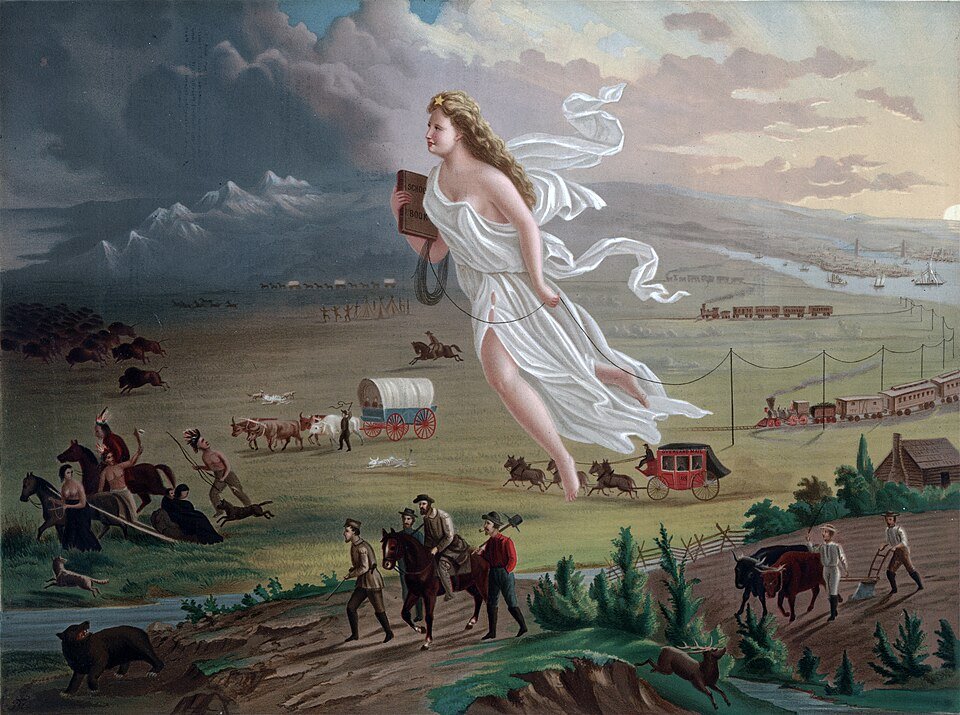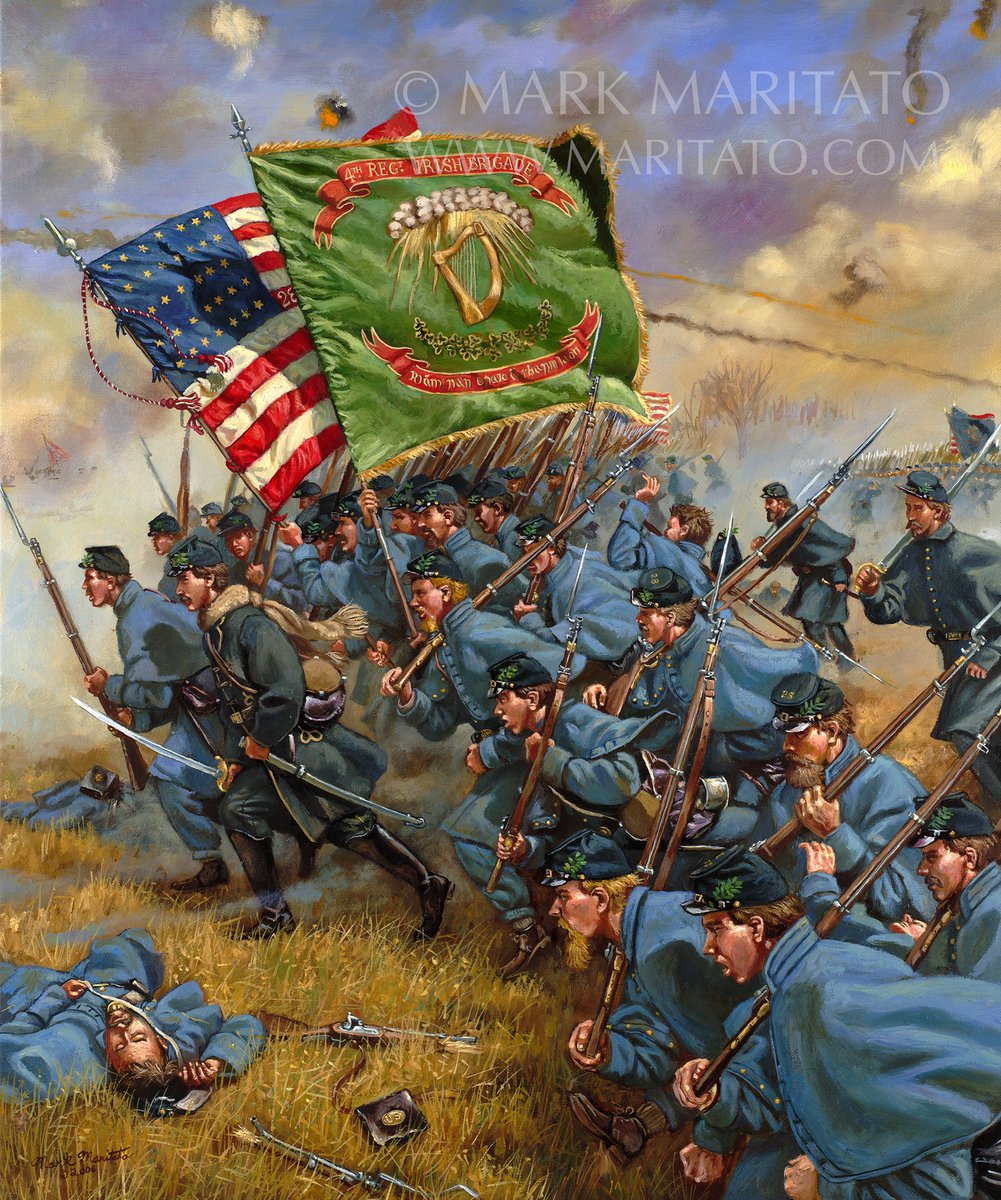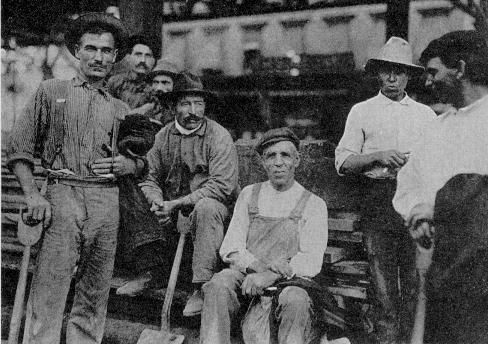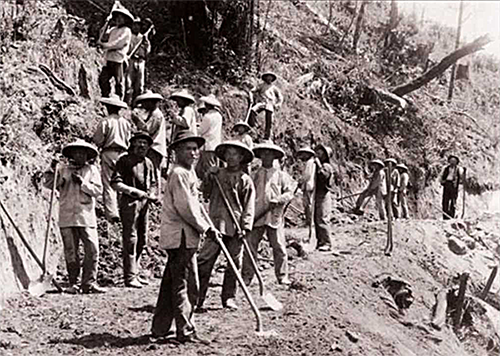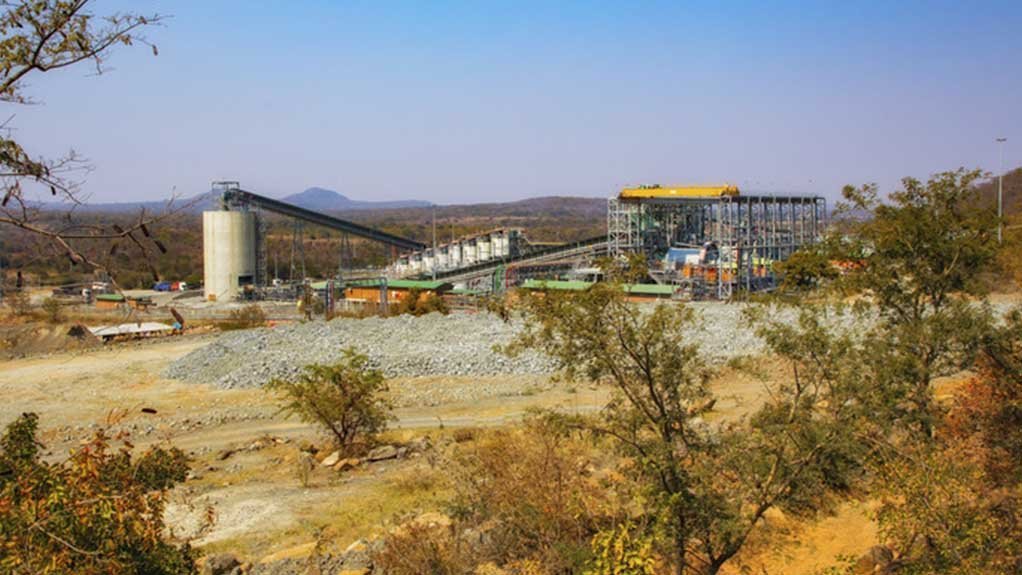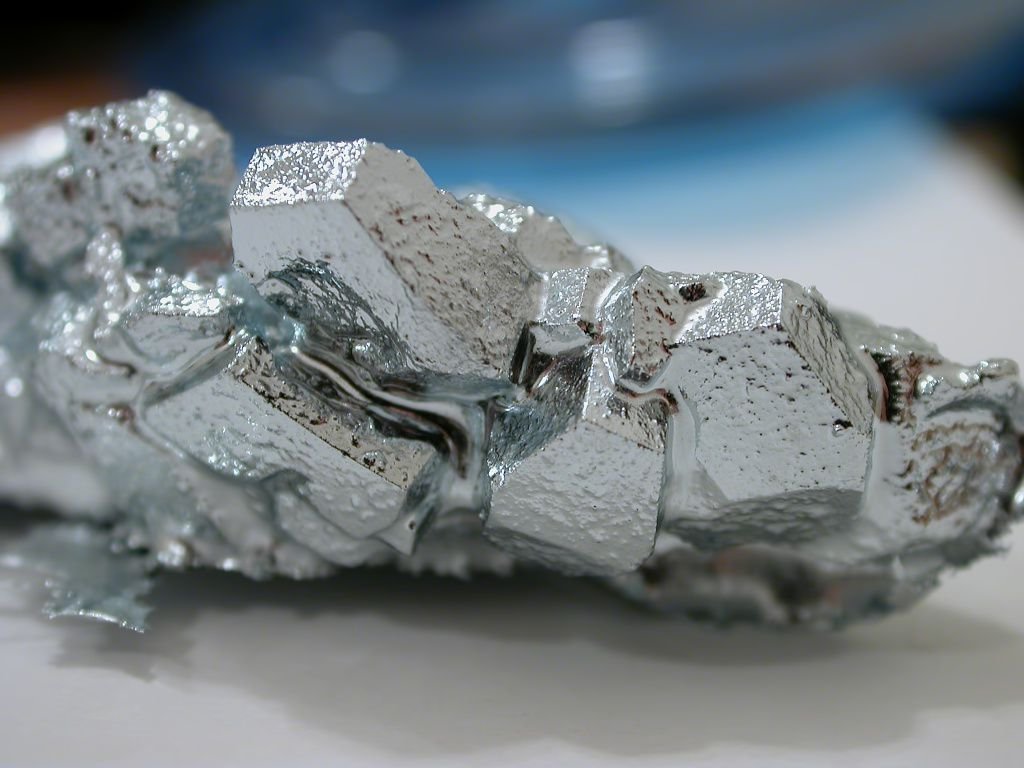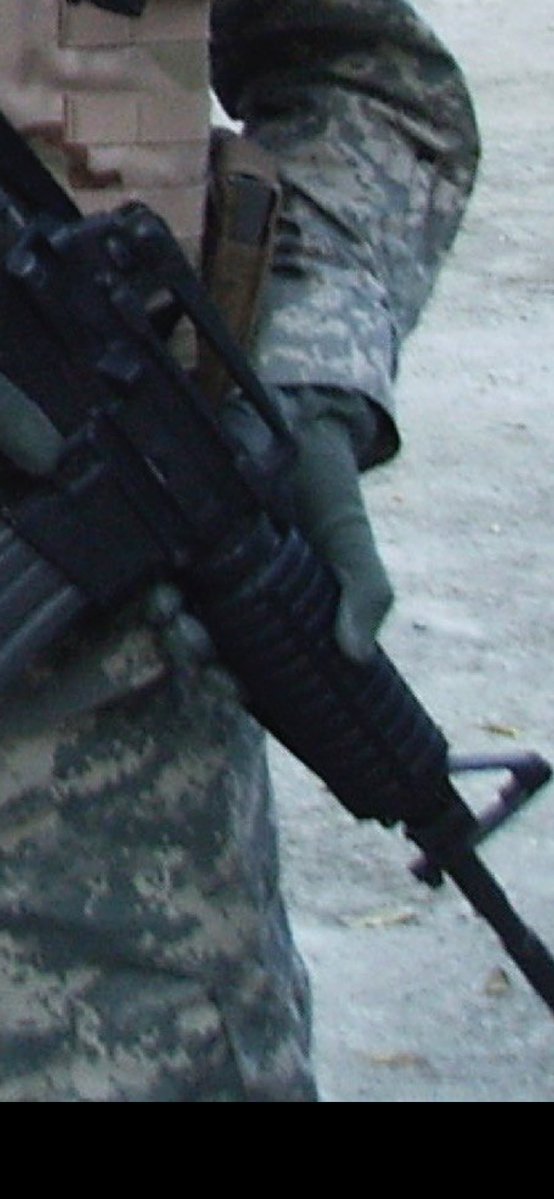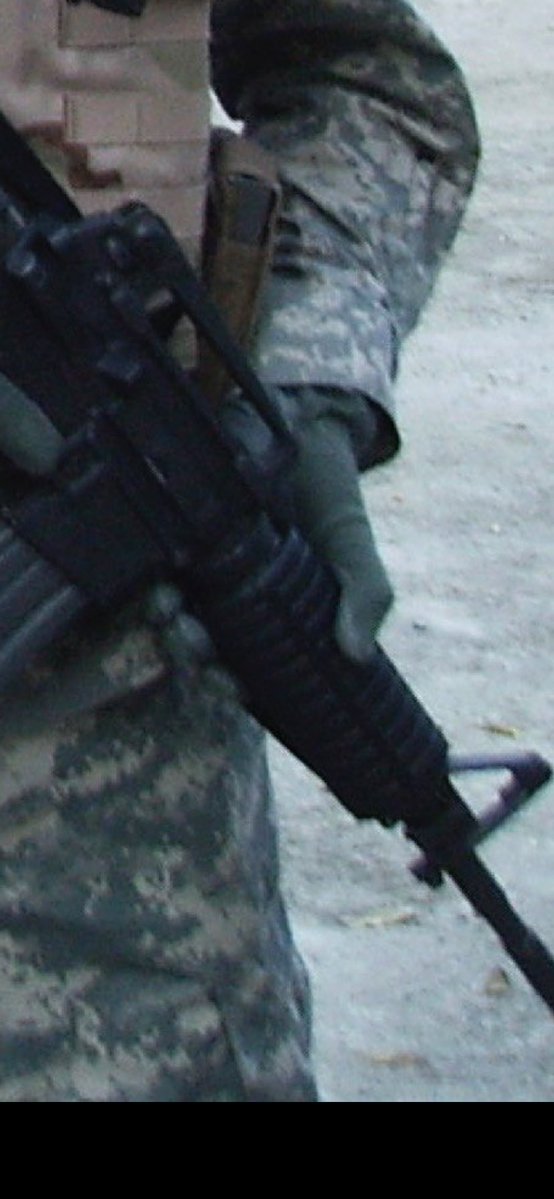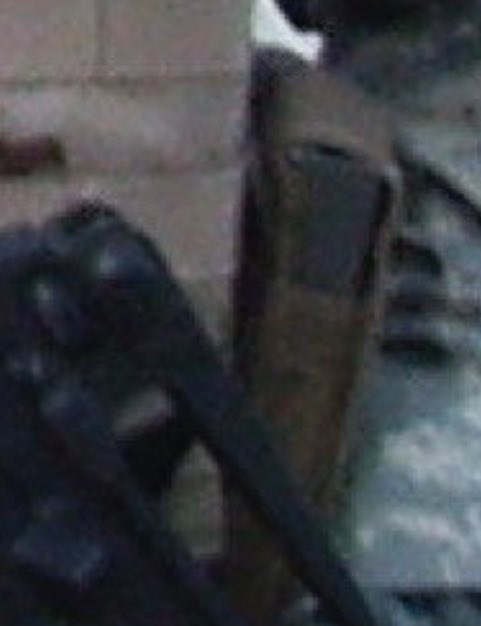1/ The Battle of Hancock Airfield (Pt1)
As the Chinese General stood in a control tower and looked at the devastation of Fort Knox, still smoldering from the battle that raged across it less than a few days ago , he felt a sense of worry.
As the Chinese General stood in a control tower and looked at the devastation of Fort Knox, still smoldering from the battle that raged across it less than a few days ago , he felt a sense of worry.

2/ It wasn’t the massive casualties his units had taken securing the large American base, nor was it how uncoordinated and chaotically the mixed Chinese, Korean, Russian and Iranian units under his command had performed that led the General to pace back and forth.
3/ The thing that worried the General was not even the uncertainty of how the war was progressing beyond his horizon, it was what was happening less than 50 miles to his west. 
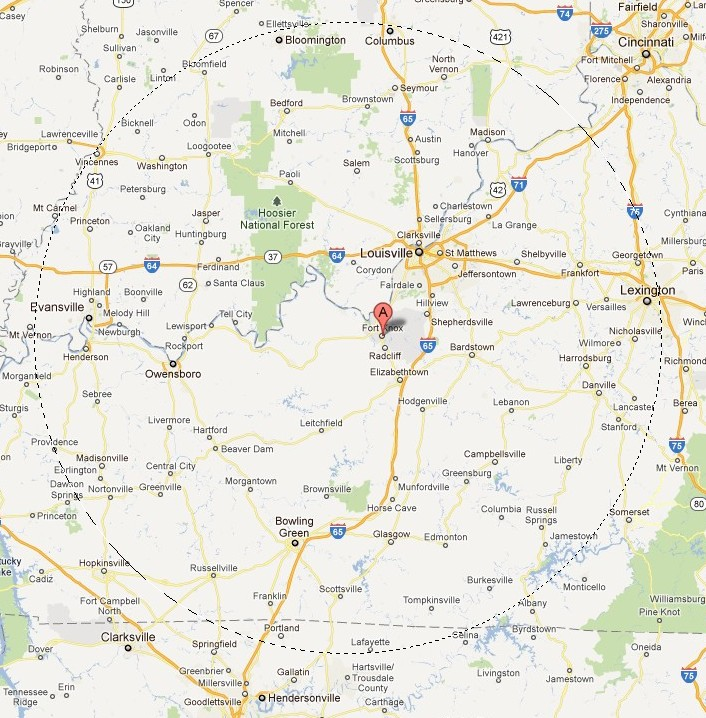
4/ Despite the assurances from his superiors that every piece of unshielded technology in America would useless, the live feed from his reconnaissance drones painted a troubling picture. 
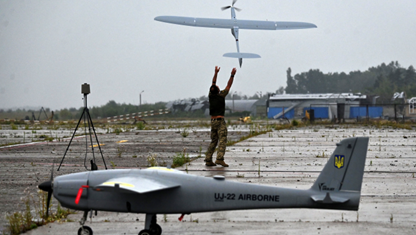
5/ He did not know exactly what the Americans were doing with those trucks to the west, or why they were so hurriedly pushing the containers off the back and welding large fuel tanks in their place, but it worried him. 
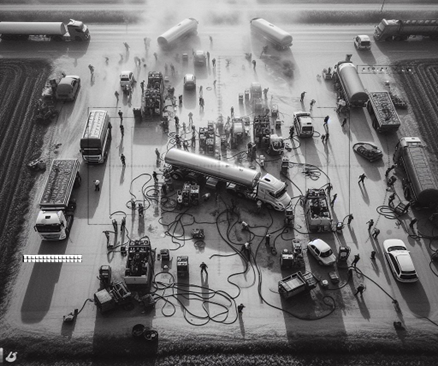
6/ He had not climbed the ranks of this totalitarian army and been given command of the most important task on his country’s biggest day in a since the Mongol invasion by accepting things he did not know.
7/ The General’s mission was clear, to hold Fort Knox until reinforcements could arrive by air from the Mainland. Whatever the Americans were up to at that repair facility needed to be investigated.
8/ Seeing a chance to kill two birds with one stone, the General summoned what remained of his Iranian contingent to send to investigate. The General was a soldier, and as much as he detested spies, he understood their purpose. 
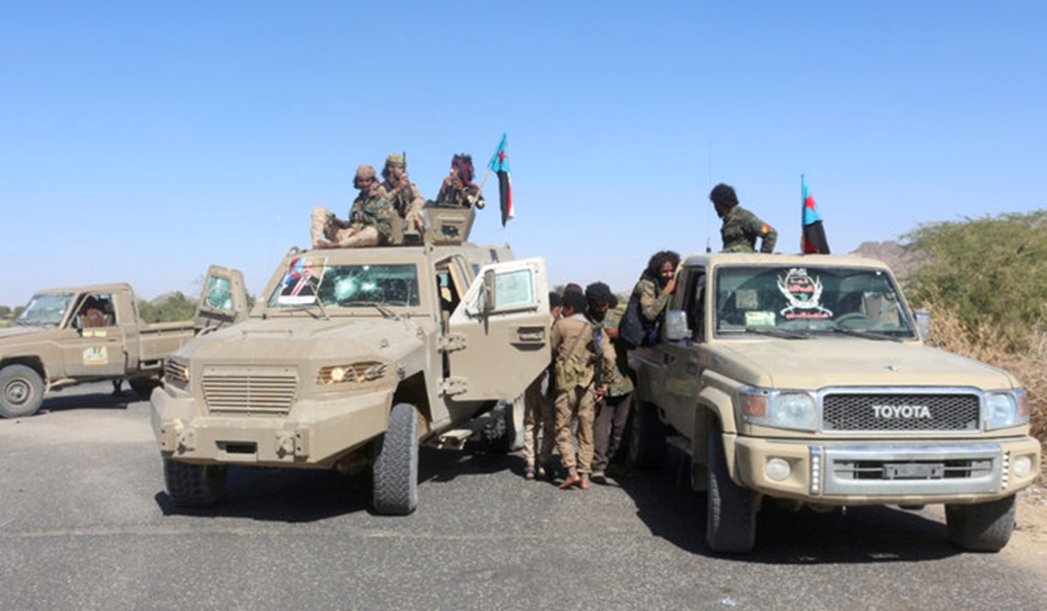
9/ But that purpose was done, and the performance of these men during the battle had been abysmal.
As he watched two dozen Iranian soldiers head off down Highway 60 towards the town of Hawesville, he thought his problems were solved. They were only just beginning.
As he watched two dozen Iranian soldiers head off down Highway 60 towards the town of Hawesville, he thought his problems were solved. They were only just beginning.
10/ What the General had been told was true. Unshielded technology would cease to function after the EMP strike, but outside Fort Knox sat one of the largest truck stops in the state, on a quiet back road that led away from one of the biggest nuclear facilities in the region. 
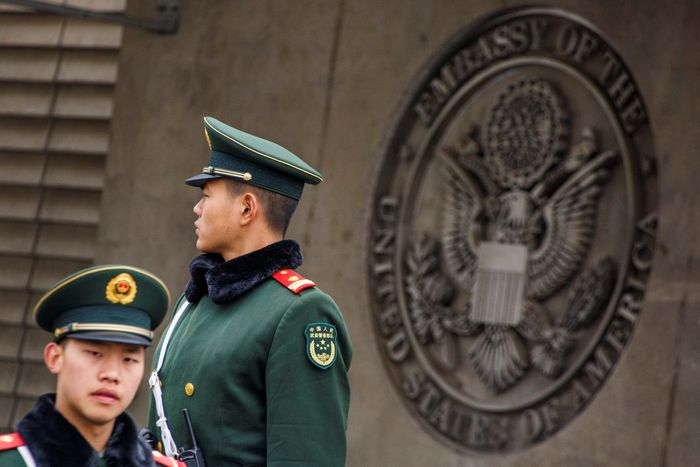
11/ While most trucks were turned into useless metal scrap by the EMP strike, vehicles used by the Department of Energy to transport nuclear material had special shielding to prevent this very thing.
12/ The Americans in Hawesville were pushing their containers off the back of their trucks, and swapping them with fuel tanks. The gas station in Hawesville had another benefit… its tanks held JP8, also known as Kerosene, or jet fuel. 
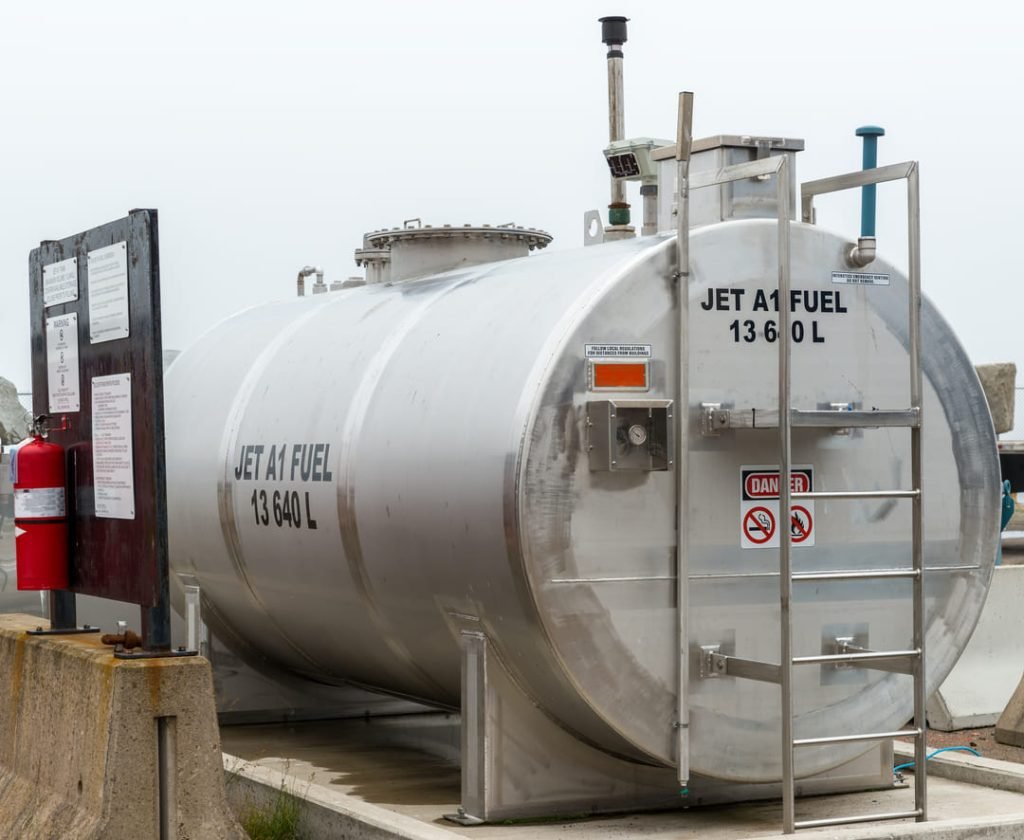
13/ Two hours later the pieces began to fall into place for the General.
He had heard no word from his Iranian scout unit, but that no longer mattered. His electronics team had managed to get one of the satellite phones working, and a desperate call had come through.
He had heard no word from his Iranian scout unit, but that no longer mattered. His electronics team had managed to get one of the satellite phones working, and a desperate call had come through.
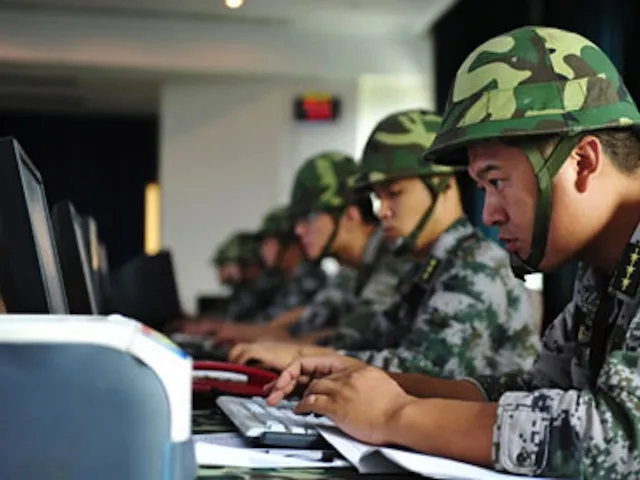
14/ Despite the EMP and despite all their efforts, an American A-10 Warthog, America’s beloved close air support aircraft, was on its way. 
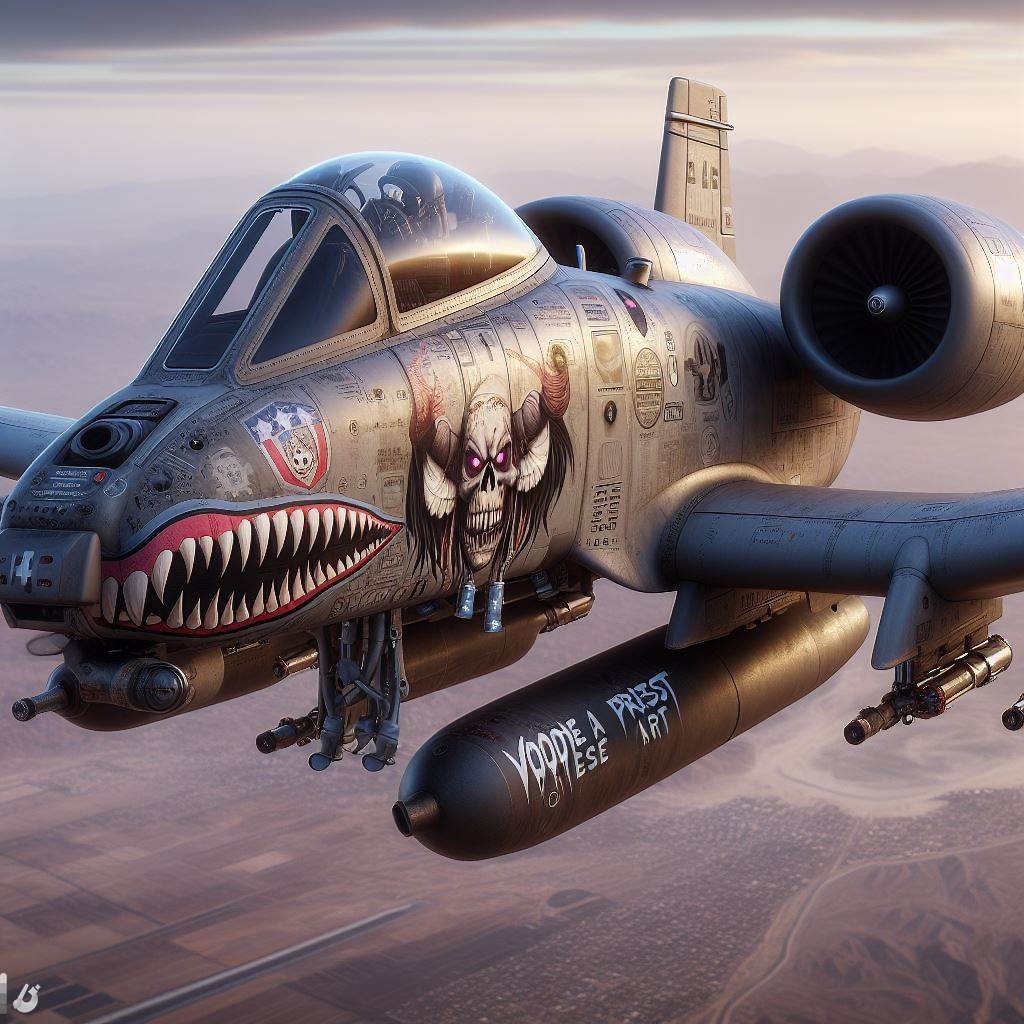
15/ The intelligence report told him it was likely low on fuel, so would need somewhere to refuel.
It was at that moment the General remembered the Americans at that truck stop in the middle of nowhere. Re-routing a drone back, his heart sunk.
The trucks were gone.
It was at that moment the General remembered the Americans at that truck stop in the middle of nowhere. Re-routing a drone back, his heart sunk.
The trucks were gone.
16/ The General knew even one of those planes could play a decisive role in the early days of the invasion that was coming to his east, and he knew his leaders expected him to stop it. 
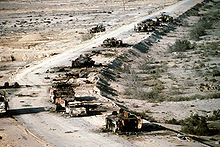
17/ Sending every drone he had, he found them, pulling up to a tiny private airstrip, something that would never exist where he was from. Checking a map he found its name “Hancock County Airfield”. 
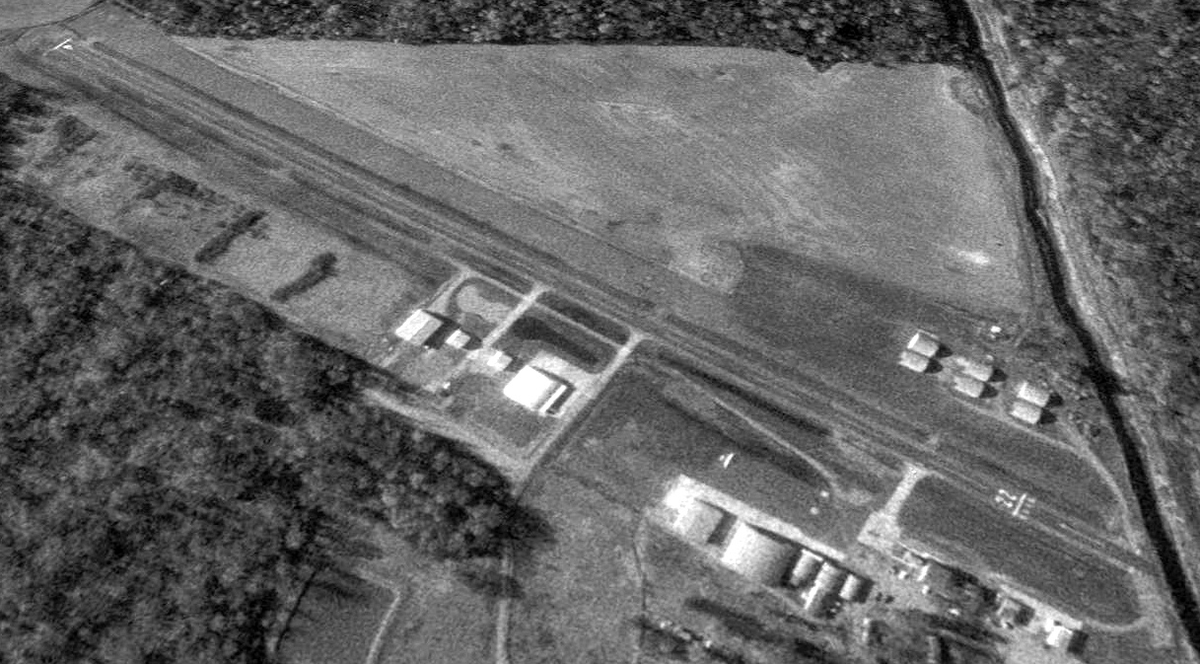
18/ Knowing time was short, the General sent his most trusted officer off with a company of his best infantry to prevent disaster.
The Chinese column proceeded up the American highway quickly.
The Chinese column proceeded up the American highway quickly.
19/ Snaking though the Kentucky countryside, the smooth American roads and the great American tires were almost too good to be true to the Chinese soldiers piled in the back of the pickup trucks.
Then they came upon the missing Iranian patrol.
Then they came upon the missing Iranian patrol.

20/ Finding the Iranians dead was not a huge surprise.
The country was in chaos without power, but what was a surprise was how the Iranians had died.
Their bodies sat in their seats as if they were merely parked.
The country was in chaos without power, but what was a surprise was how the Iranians had died.
Their bodies sat in their seats as if they were merely parked.
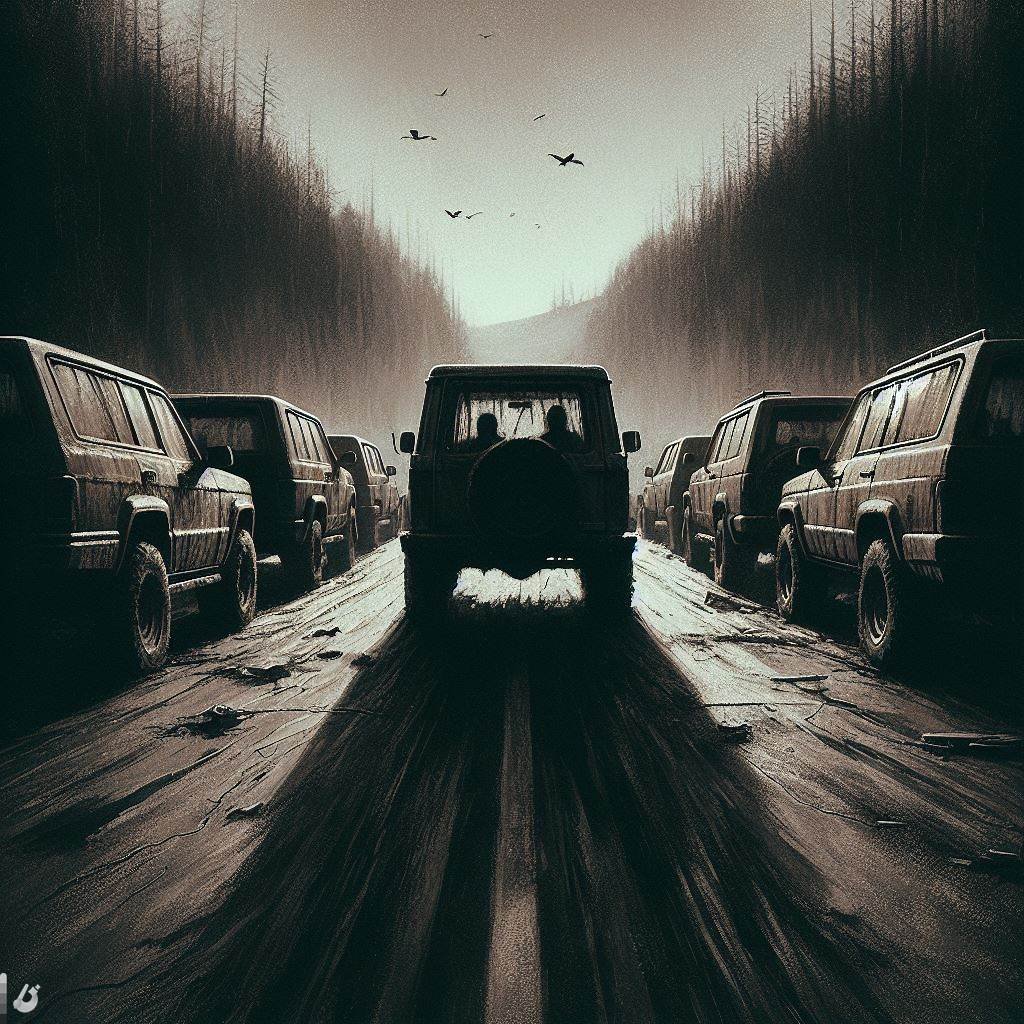
21/ Some slumped, some leaned forward, but it was as if they died here without even the chance to defend themselves. Almost all of their weapons still even had the safeties on.
The Chinese officer also saw, to his puzzlement, that nothing had been looted.
The Chinese officer also saw, to his puzzlement, that nothing had been looted.
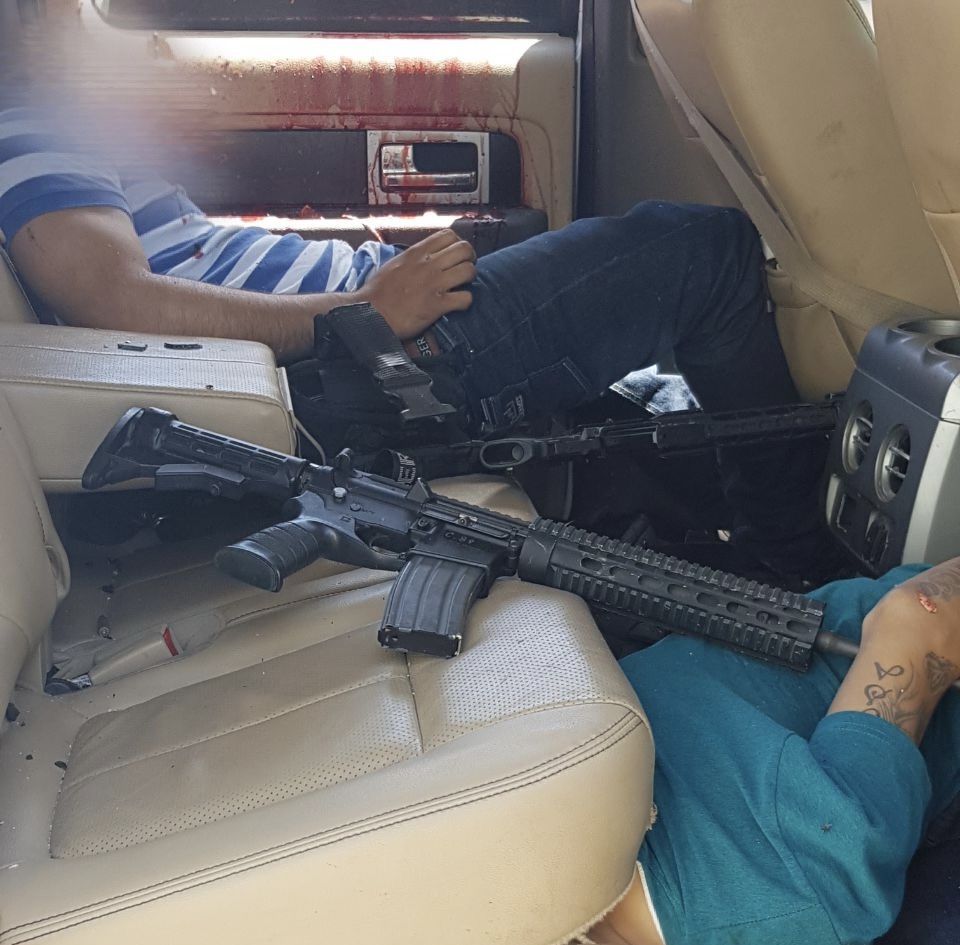
22/ Every member of the patrol had a rifle, and yet every rifle still sat in their vehicles. It was as if the Americans who had killed these men didn’t need them.
Some of these rifles had been taken right out of the arms rooms at Fort Knox.. how could they not want them?
Some of these rifles had been taken right out of the arms rooms at Fort Knox.. how could they not want them?
23/ A chill ran down the Chinese Major’s spine as he started to realize that none of the bodies had been mutilated or put on display. The Americans had simply killed the Iranians and moved on.
24/ Whoever these Americans were, they were killers, and they were out there ahead of him in the hills, waiting.
He did not have to wait long to hear from them.
He did not have to wait long to hear from them.

25/As his trucks started to pull away from the dead patrol he saw men fall out of the truck in front of him. Thinking the driver had accelerated too quickly, the major started to scream at the man, but froze when he saw the head of one of his men disappear in a cloud of red vapor 
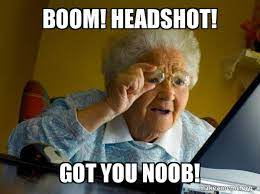
26/ He dove out and put his unit into a defensive circle and started engaging the men in the hills that he could not see.
Pouring fire into the trees, he felt confident he could push back what he assumed to be just a handful of eager locals.
Pouring fire into the trees, he felt confident he could push back what he assumed to be just a handful of eager locals.
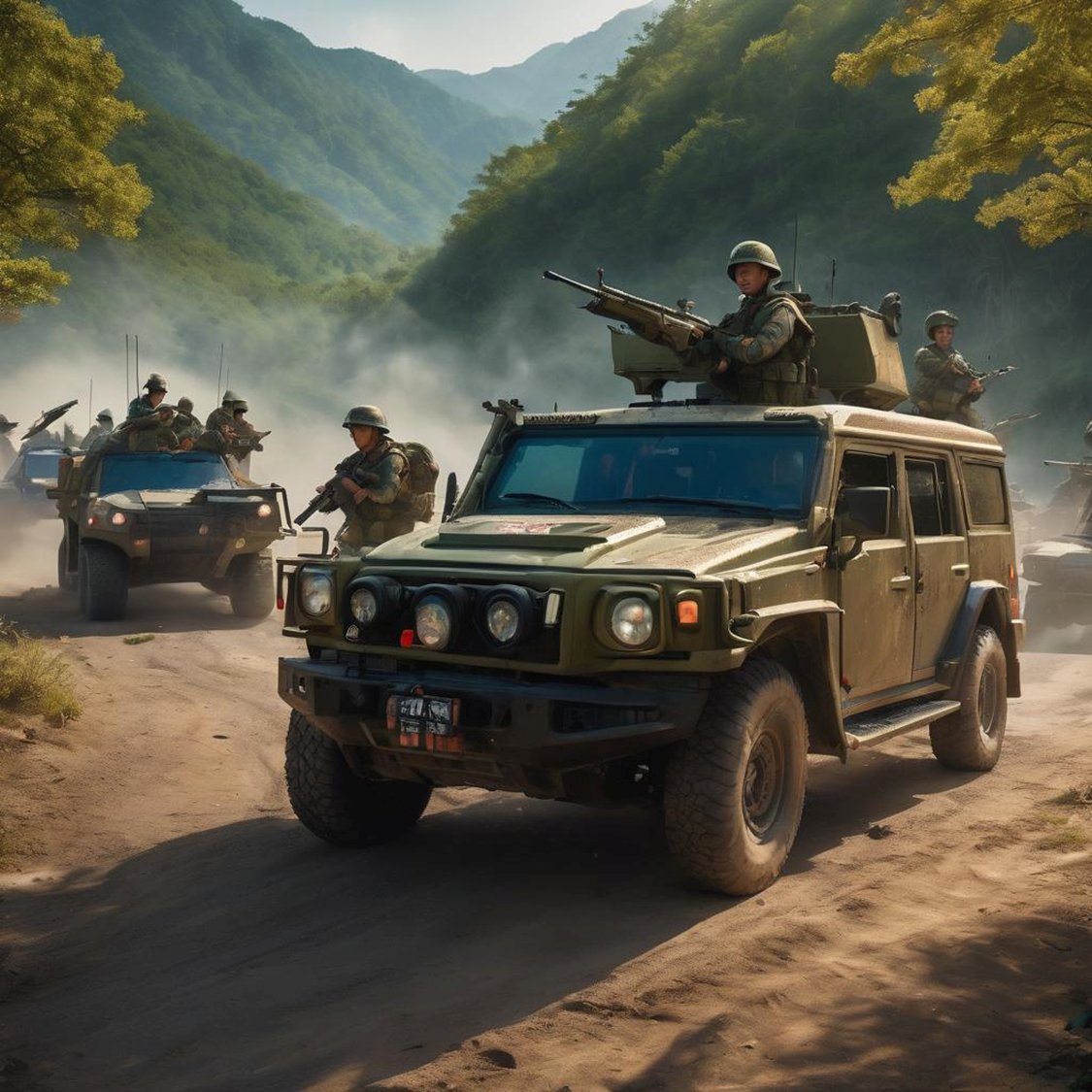
27/ Hearing the fire slack, he mounted his troops and started to move. He had lost two vehicles, and a handful of men. But that didn’t matter. He needed to get to the airfield.
A half mile down the highway, it happened again. And then again.
A half mile down the highway, it happened again. And then again.

28/ By the time the Major had mounted and dismounted his men four times, he had lost over an hour, half his men, but worse still, every single one of his vehicles. 

29/ The Americans were killing his troops, but the Major had realized too late they were really aiming for the tires of his precious vehicles.
As if the Americans knew where the Major was heading, and were trying to slow him down.
Part 2 coming faster than a @mnsibley sequel
As if the Americans knew where the Major was heading, and were trying to slow him down.
Part 2 coming faster than a @mnsibley sequel

• • •
Missing some Tweet in this thread? You can try to
force a refresh


